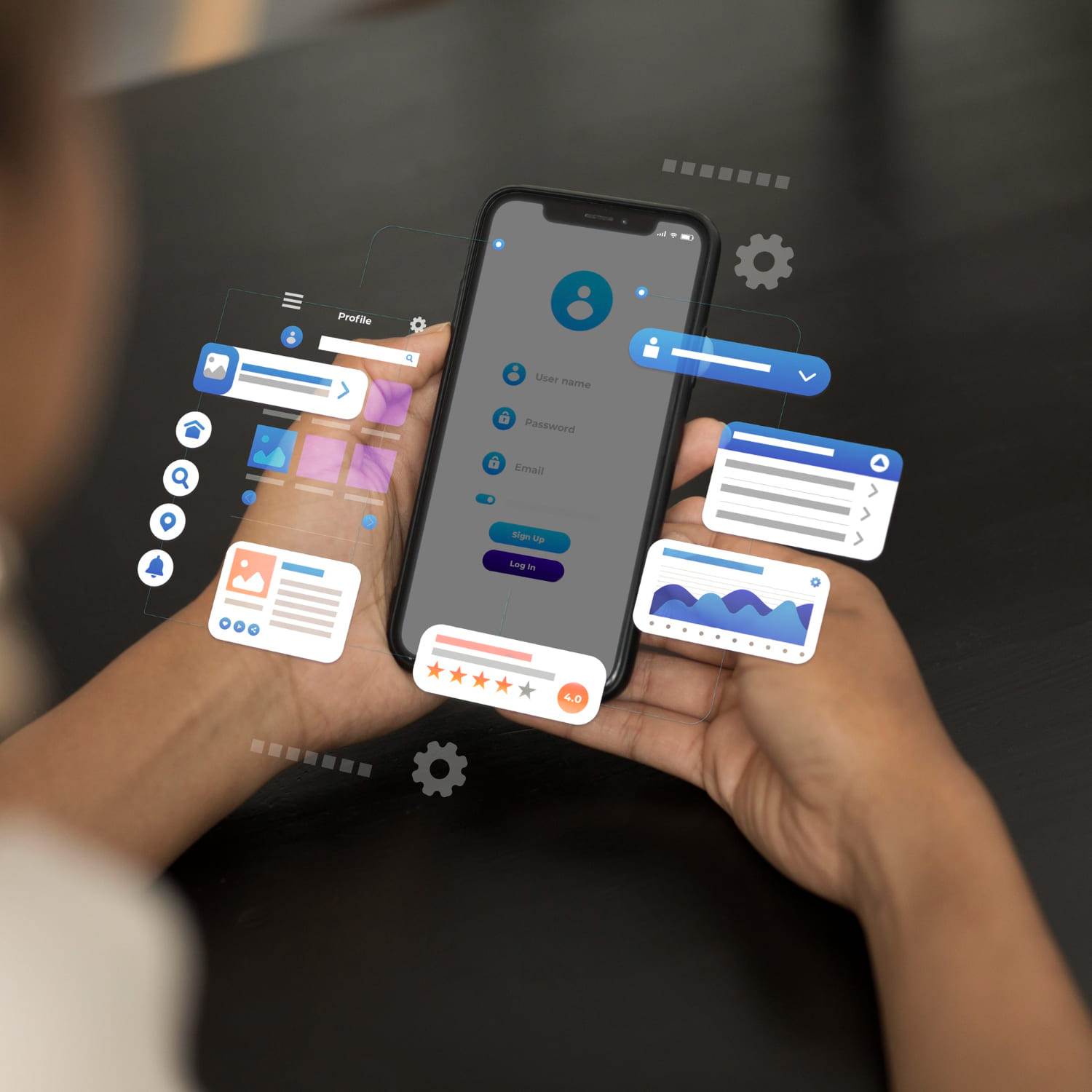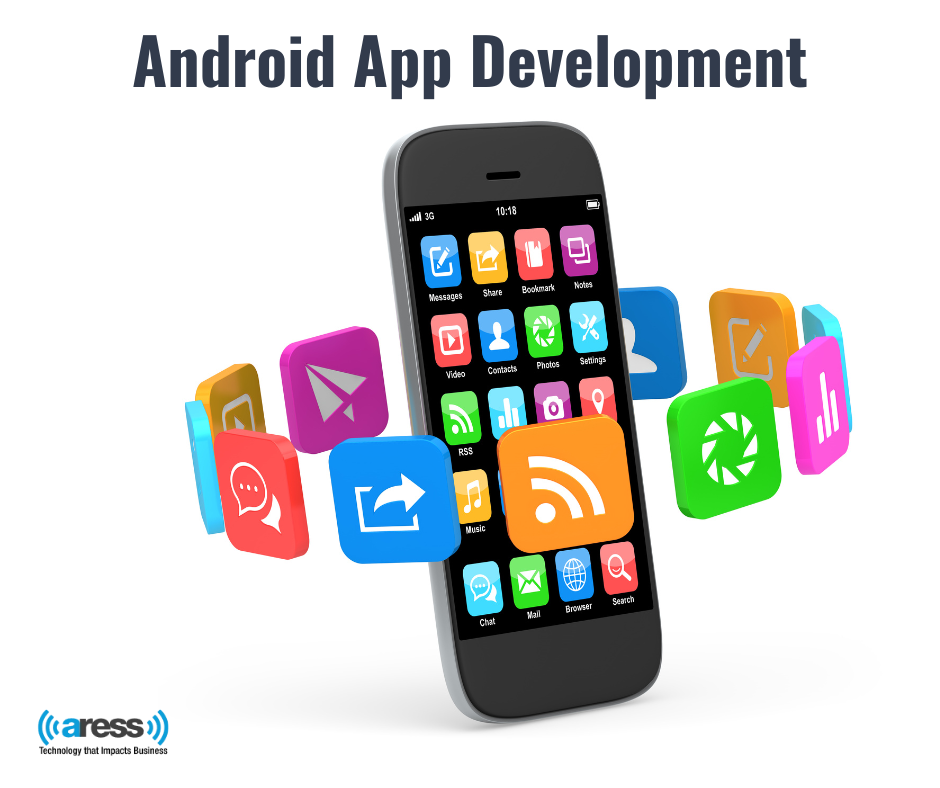Exploring the Future of AI in Dubai’s Mobile App Development

Introduction
Dubai, a city synonymous with innovation and technological advancement, is fast becoming a hub for cutting-edge developments in various industries. One of the most dynamic sectors in Dubai is mobile app development, which is increasingly integrating Artificial Intelligence (AI) to create more sophisticated, user-friendly, and efficient applications. This blog explores the prospects of AI in mobile app development in Dubai, examining the current trends, potential benefits, challenges, and the transformative impact AI is set to have on this burgeoning industry.
Current Landscape of Mobile App Development in Dubai
Dubai’s mobile app development scene is characterized by a rapid adoption of new technologies and a robust ecosystem of startups, tech giants, and government initiatives. The city’s commitment to becoming a global technology leader is evident in initiatives like the Dubai Future Foundation and Smart Dubai, which aim to foster innovation and smart solutions across various sectors. The adoption of AI in mobile app development is not just a trend but a strategic move to enhance the city’s technological prowess and improve the quality of life for its residents.
Trends Driving AI Integration in Mobile Apps
- Personalization and User Experience: AI-driven personalization is revolutionizing how mobile apps interact with users. Machine learning algorithms analyze user behavior, preferences, and patterns to offer personalized content, recommendations, and experiences. In Dubai, where a diverse population demands varied and customized services, AI’s ability to deliver tailored experiences is invaluable.
- Enhanced Security: With the rise in cyber threats, AI’s role in enhancing security through predictive analytics and anomaly detection is becoming crucial. AI-powered security features can detect and respond to potential threats in real time, providing robust protection for sensitive user data.
- Voice and Image Recognition: AI-powered voice and image recognition technologies are transforming how users interact with mobile apps. In a city like Dubai, where multilingual and multicultural dynamics are at play, voice recognition can bridge communication gaps, while image recognition can enhance user engagement in apps related to retail, tourism, and more.
- Automation and Efficiency: AI enables automation of various processes within mobile apps, from customer service chatbots to automated scheduling and task management. This not only improves efficiency but also allows developers to focus on more complex tasks, driving innovation.
- Predictive Analytics: By leveraging AI for predictive analytics, businesses can gain insights into user behavior, market trends, and operational efficiencies. In Dubai’s competitive market, these insights can help companies stay ahead by making informed decisions based on data-driven predictions.
Potential Benefits of AI in Mobile App Development
- Improved User Engagement: AI’s ability to deliver personalized experiences keeps users engaged and satisfied. For instance, a retail app that suggests products based on a user’s past purchases and browsing history is more likely to retain users and encourage repeat business.
- Operational Efficiency: Automation of routine tasks and processes within apps can significantly improve operational efficiency. AI-driven tools can handle customer inquiries, process transactions, and manage schedules, reducing the burden on human resources and minimizing errors.
- Enhanced Customer Support: AI-powered chatbots and virtual assistants provide 24/7 customer support, addressing user queries promptly and accurately. This not only improves customer satisfaction but also frees up human agents to handle more complex issues.
- Data-Driven Insights: AI enables the collection and analysis of vast amounts of data, providing valuable insights into user behavior, preferences, and market trends. These insights can inform business strategies, leading to better decision-making and increased competitiveness.
- Cost Reduction: By automating processes and improving efficiency, AI can help reduce operational costs. This is particularly beneficial for startups and small businesses in Dubai, allowing them to allocate resources more effectively and focus on growth.
Challenges in Integrating AI into Mobile Apps
- Data Privacy and Security: The use of AI requires access to large amounts of user data, raising concerns about data privacy and security. Ensuring compliance with data protection regulations and maintaining user trust is a significant challenge for developers.
- High Development Costs: Implementing AI technologies can be costly, especially for small businesses and startups. The need for specialized skills and advanced infrastructure can drive up development costs, potentially limiting the accessibility of AI-driven solutions.
- Technical Complexity: Integrating AI into mobile apps requires expertise in machine learning, data analytics, and other specialized areas. The technical complexity can pose a barrier for developers, necessitating ongoing training and development.
- Ethical Considerations: The use of AI raises ethical concerns related to bias, fairness, and transparency. Developers must ensure that AI systems are designed and implemented ethically, avoiding biases that could harm users or lead to unfair outcomes.
- User Acceptance: While AI can enhance user experiences, there is a risk of resistance or skepticism from users who are wary of AI technologies. Building user trust and demonstrating the value of AI-driven features is essential for widespread acceptance.
The Transformative Impact of AI on Mobile App Development
- Healthcare: AI-driven mobile apps are transforming healthcare in Dubai by enabling remote diagnostics, personalized treatment plans, and health monitoring. Apps like HealthifyMe and Babylon Health use AI to provide users with health insights, virtual consultations, and fitness tracking, improving access to healthcare services.
- Retail and E-commerce: AI is revolutionizing the retail and e-commerce sectors by enhancing the shopping experience through personalized recommendations, virtual try-ons, and automated customer service. Retail giants in Dubai are leveraging AI to analyze consumer behavior, optimize inventory management, and deliver targeted marketing campaigns.
- Travel and Tourism: Dubai’s tourism industry is benefiting from AI-driven apps that provide personalized travel recommendations, real-time language translation, and virtual tour guides. AI enhances the travel experience by offering tailored itineraries, dynamic pricing, and efficient customer service, attracting more tourists to the city.
- Finance and Banking: AI-powered apps are streamlining financial services by enabling secure transactions, fraud detection, and personalized financial advice. Banks in Dubai are adopting AI to improve customer experiences, automate processes, and enhance security, making financial services more accessible and efficient.
- Education: The education sector in Dubai is witnessing a transformation with AI-driven mobile apps that offer personalized learning experiences, virtual classrooms, and adaptive learning platforms. These apps cater to diverse learning needs, making education more engaging and accessible for students.
Government Initiatives and Support
Dubai’s government is playing a pivotal role in fostering AI innovation through initiatives like the Dubai AI Roadmap, which aims to integrate AI into various sectors, including mobile app development. The establishment of AI Labs and collaborations with global tech companies are further accelerating the adoption of AI technologies. Government support in the form of funding, infrastructure, and regulatory frameworks is crucial for the sustained growth of AI-driven mobile app development in Dubai.
Conclusion
The prospects of AI in mobile app development in Dubai are incredibly promising, driven by a strong commitment to innovation, government support, and a vibrant tech ecosystem. AI is set to transform mobile apps across various sectors, enhancing user experiences, improving operational efficiency, and driving economic growth. However, addressing challenges related to data privacy, development costs, and ethical considerations is essential for the sustainable and ethical deployment of AI technologies. As Dubai continues to embrace AI, the city is poised to become a global leader in mobile app development, setting new benchmarks for innovation and technological advancement.




